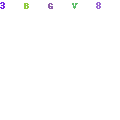Investing vs. Trading - the Alcoa example – the follow up
Back on the 14th of April I decided to make an example of the position I own in Alcoa to demonstrate the difference between trading and owning. At the time I stated
“So here is the experiment. Just for the sake of mental masturbation, let’s assume I sell the stock today for $9.25, a gain of $1.77 or 32% net. In exactly 30 days we will say I will buy the stock back at the then current price. Let’s see if this makes sense. And then in another say 6 months from the theoretical buyback date we’ll take a look at the value then (if the stock does not hit my actual target). We can then evaluate which plan has created the best gain, net and not percentage.”
Based on the examplew above I would have sold the AA position for $9.25 from my cost basis of $5.55. The 32% total takes into account the cost of the trade and the taxes on the profit. Because of the 30 day rule the position could not be bought back until May 14th. Which would give me a repurchase price of $8.74 as of the close.
The difference is .51 cents or roughly 6% less than the sale price of April. Thus if we add in the 5% cost to repurchase the stock, the net added gain to me is 1%, granting a total gain of 33%.
While that gain is very respecatble, especially in a down market, having just held the stock my return to date is 70% at the time of this post (AA is currently $9.43). Had I made the sale for the trade and repurchased the position my current gain would be 3% (including the cost to repurchase the stock giving me a net cost of $9.18).
So in comparison, holding the stock would have me currently with a 70% gain, minus tax and sale cost becoming a net 40% gain. Trading the stock, with a repurchase, gives me a net 36% gain. While the difference may not sound large, it is taking net profit out of my pocket.
This also does not factor in the fact that if I had not repurchased the stock I would be out 6% of profit. If I purchased the stock one day later I would have had to buyback the position at $9.03, which including commission would plce me at a loss on the current price and drop my profit to 31%. And if for any reason I was unable to purchase the stock until today, I would be losing even more of the initial profit in the stock (a repurchase cost of roughly $9.90 net or a loss of 7% dropping the profit to 25%).
All of this ignores the fact that I had the option, if I held the stock, to have sold it at $10.50 – a 90% gain or a net of 60% as of the close May 6th. Not counting the fact that I recall the stock having an intraday high of $11. That is a home run in a bad market and horrible ecomonic environment.
Still the stock has not hit my first target of $15. So I have no intention of selling yet.
But the question is if trading a stock is better than buying and holding. In my opinion, buy and hold is always better if you have sound fundemental reasons for purhasing the stock in the first place. As this example shows, the net gain is better under all circumstances, by holding the position. Only luck could allow a better net return, potentially.
This is of course a theoretical example. Actual returns and strategies may result in differing returns. Objectives of your portfolio may be substantially different than those posed in this example. Any portoflio decision should always be discussed with professional.
But at least you may have a bit more insight to the question of investing versus trading. I hope this has helped.
Labels: AA, Alcoa, investments, stock market




0 Comments:
Post a Comment
Subscribe to Post Comments [Atom]
<< Home